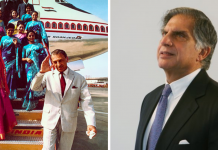
The novel coronavirus that first broke out in the city of Wuhan in China has entered into the biggest slum in Asia – Dharavi. Referring to the cases reported from Dharavi, Tata Group Chairman, Ratan Tata described the situation as a ‘wake up call’ for planners and administrators.
Dharavi is among the area having the highest density of population with around 9 lakh people living in about 2.5-sq.km. A few weeks ago when Dharavi reported its first case of the novel coronavirus, the health experts expressed concerns over the infection spreading to most in the least amount of time. Considering the housing structures in the slum, Ratan Tata described it as a ‘wake-up call’ for the administrators who are struggling to contain the pandemic through social distancing.
Reexamination of quality of life needed
On Monday, Tata spoke on the future of design and construction at a virtual panel discussion which was watched by thousands. Speaking about the COVID-19 outbreak, he said the outbreak had served to underscore a crisis in housing which deprived lakhs of Mumbai’s residents of fresh air and open space. He further said,
“We do design for high-value housing and provide in the slums the residue. We should be ashamed because we have the image we want to project ourselves and there’s a part we want to hide. We are offended when people criticize it, but we have social responsibilities as architects and builders. The corona issue is a wake-up call of what beholds us. What our concern is that it turns around and bites us.”

Tata did not hold back to talk about the condition of slum-dwellers. Tata also questioned the policy of eliminating the slums and shifting the residents into a narrow high-density structure 20-30 miles away. Tata also explained the need to reexamine what we consider as an acceptable quality of life. In the end, speaking about the impact of the coronavirus, he said,
“In the last few months, we have been humbled to realize that a disease could run across the globe. I think we have to consider this issue as being our problem and not their problem. We need to concern ourselves with the quality of life everywhere. We need to ask ourselves, are we ashamed of what we see or proud of what we see? We need to consider urban communities as one. We need to look at the possibility of ownership of slums rather than rentals. We need to be ashamed of what we’re doing and we need to focus on considerably being proud of what we’re doing. Mumbai and Maharashtra need to be proud of the transition that they make. And the transition needs to be real.”
Source: The Times of India


































